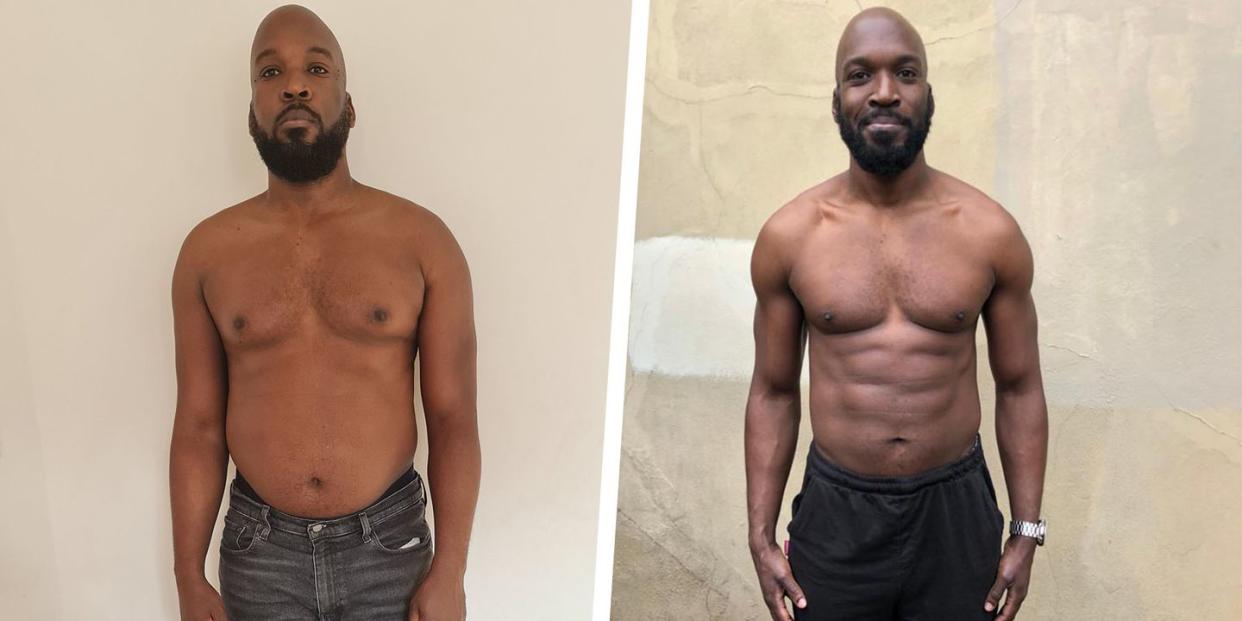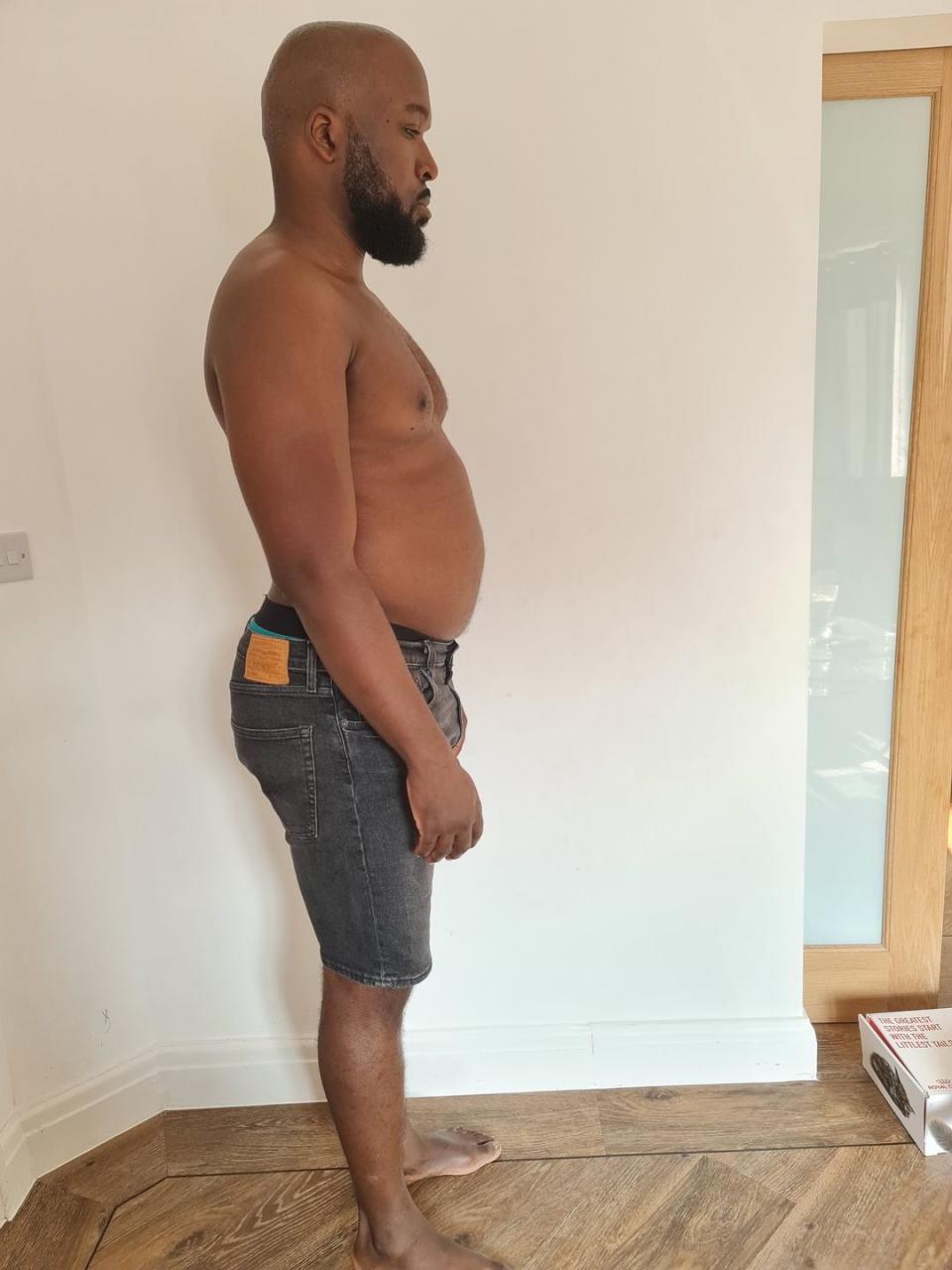Supersets and Cutting Carbs Helped This Guy Drop 45 Pounds in 5 Months

It's no secret that keeping fit and healthy in your forties is far more of a challenge than it was in your twenties. Typically, a busy family life, high-stress occupational environments and a slowing metabolism are the primary culprits for midlife weight-gain and, if you're not careful, can lead to certain health complications.
For 41-year-old Samuel Baptiste, ad-hoc weight loss attempts and frequent snacking habits meant that weight-gain always caught up with him, despite his regular fitness routine that involved gym sessions, running and playing football. "I had been overweight for a few years and had lost a little weight here and there but nothing significant," he says.
"I have always been quite active but would destroy all my hard work in the gym, running or playing football by consuming a lot of biscuits without realizing the impact it was having on my weight," he explains. "The backend of my 40th year I reached 106 kg (233 pounds) and felt slow and was no longer agile or athletic. I became unfit and my recovery post-exercise was a lot slower. I also found that I picked up a lot more niggling injuries playing football."

For Baptiste, there was a moment that spurred him on to make a radical change in his health and fitness: when he stepped on the digital scales and it read back to him that he had undergone 'a significant change since your last measurement'. This, he says, was when "I knew I needed to make a big change for the better."
"I joined Ultimate Performance, and after taking my measurements and discussing my goals I was immediately told to remove most carbs from my diet (rice, pasta and potatoes). These were replaced with a lot more dense vegetables such as broccoli," he explains. As part of his new plan, Baptiste sweated through "three weights sessions a week, which included a lot of super setting with limited recovery," he says. "I also did two to three cardio sessions a week. Alongside walking an average of ten thousand steps per day."
Men's Health says: At this point, it’s important to know that low-carb isn't the same thing as no-carb. A low carb diet simply means you're reducing the amount of carbs you currently eat.
Changes weren't just being made in the weights room. Baptiste — who used to eat "a lot of biscuits" — had to totally re-evaluate his diet to match his training goals. "My diet changed dramatically at the start," he explains. "Out were the biscuits, chocolate and carbs; and in was protein in every meal, which included eggs, chicken, steak, protein Weetabix and protein yoghurts."
Not only was Baptiste's diet re-calibrated, but so was his mental approach to food and the way he structured his workouts. "My trainer Stephen Roland got me thinking more about the number of calories I consumed; but, more importantly, [I started] paying attention to my carbs, fats and proteins."
Likewise, with a new approach to his training, personal bests weren't far behind. "Supersetting exercises worked really well for me. It kept my heart rate high and meant one body part was rested while another was working," he explains. "This was fantastic. I went on to do exercises that before I would have felt were impossible, including 20 kg weighted pull-ups and 25 kg weighted dips."
Unsurprisingly, weight-loss came thick and fast. "In the space of a month, I had lost 9 kg (20 pounds). I lost 20kg in total over five months. The transformation has been amazing and has had a significant impact on my life and lifestyle," he says."I have recently had a health check-up at my GP, where they said the chances of me having a heart attack or becoming diabetic in the next 10 years were 1.4 per cent. I do not believe this would have been the case before my transformation and weight loss. I currently have a resting heart rate of 49 bpm and body fat of 10 percent."
Lastly, Baptiste is keen to share his learnings to help you become your best self. His parting advice? "Stop thinking and start doing." Well said.
You Might Also Like